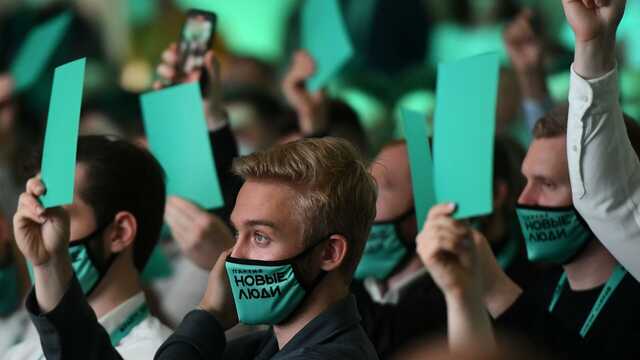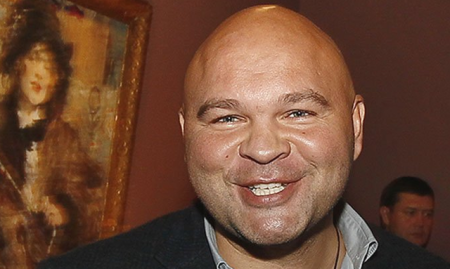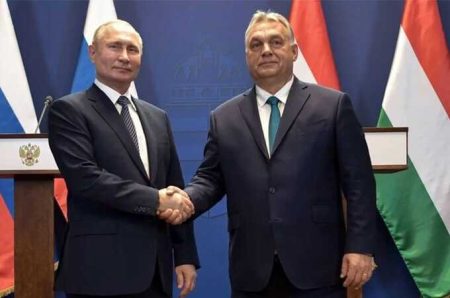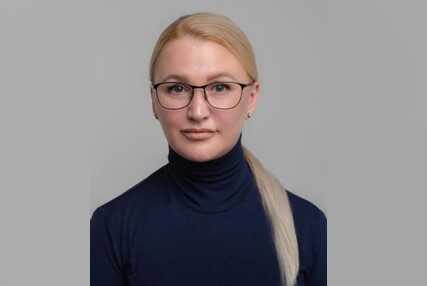The New People party is eagerly anticipating a change after the elections. However, the newly introduced “network structure” has not generated much excitement among experts and the voters.
Sources from The Moscow Post suggest that there may be a significant division brewing within the New People party, which had a strong start in the State Duma during its initial federal elections. It has been reported that disagreements have emerged between Vladislav Davankov, the head of the central executive committee and vice speaker of the State Duma, and Sardana Avksentyeva, the former head of Yakutsk and a prominent figure within the party.
The YugaSapiens Telegram channel claims that the party may already be divided into two opposing groups. Analysts interviewed by the publication indirectly confirm that there is a significant struggle for power within the party. This appears to be particularly relevant to Vice-Speaker of the State Duma Davankov, given his position.
Interestingly, Vice-Speaker Davankov was relatively unknown for a significant period. How many people knew about him before the party entered parliament? The key figures were Avksentieva and the party leader Alexei Nechaev. Stories about Nechaev have always included information about his role in the Faberlic cosmetics campaign, which made him wealthy, and suggestions that “the Presidential Administration could have been behind him from the very beginning.” It's worth remembering that this party was initially presented as a tool to create the illusion of competition in elections from the Kremlin, including simulating the development of the domestic party system.
The party itself is not rushing to confirm the crisis, but many political scientists are in agreement that a crisis within the New People party was inevitable sooner or later.
Has Vladislav Davankov, the new vice speaker of the State Duma, attempted to initiate a coup within the “New People” party?
After the elections, the party received 5.32% of the votes and 13 mandates, which resulted in a real achievement of five, rather than four, parties in the State Duma. Throughout the election campaign, the party executed effective PR on social networks and established around 550 regional offices.
Nechaev and Avksentyeva appeared on popular YouTube channels, engaged celebrities, and invested a substantial amount of money – 15 million rubles (in comparison, the Communists had 20 million) in their campaign. This effort contributed to their success in the Duma elections, as stated by Moskovsky Komsomolets.
Their active engagement with the public, coupled with their accumulated sales experience, yielded positive outcomes. The “New People” gained representation in four regional parliaments and several city dumas.
However, the elections were finished, the seats were given out, and the slogans of the "New People", who wanted to bring new ideas and new faces to power, started to fade.
“Overwhelmed by quantity”
Meanwhile, it's clear that the party leader, Mr. Nechaev, seemed to be removed from the conflicts within the party and generally withdrew into the background, as if he had had enough of politics during the elections. There are rumors that the Kremlin is also unhappy with the inactivity and conflicts within the New People.
At one point, the Russian political strategist Abbas Gallyamov, who worked with this party during the Duma elections, explained the success of the New People party by effectively meeting the demands of society. “I won’t say that they conducted a very effective campaign, but since the party is wealthy and rich, they overwhelmed it with numbers,” TVK Krasnoyarsk quotes him as saying.
“Overwhelmed by quantity” is definitely a negative characteristic for any venture. However, it's typical for any company using network marketing – when a lot of people gather in a large hall and they are bombarded with information about the merits of a unique product (in this case, a batch), supported by a vivid video sequence and other people’s success stories.
After the initial regional elections of the New People, the departure of another well-known Russian political strategist Yevgeny Minchenko from the party headquarters was a concerning signal for many. The Free Press reported on it. Minchenko was considered close to the Kremlin. The liberal press hurried to reassure its readers that the Kremlin was supposedly “leaking” the party.
However, it's now becoming evident that the reason for Minchenko’s departure could, most likely, not be this at all, but the situation within the party – tense and inconsistent with its stated goals.
If during the election period it seemed that the drive inherent in a “network structure” like commercial companies such as Oriflame or Tiens was able to attract young people, bloggers, start-up businessmen to the party structure, now, having achieved the desired, party members could get lost in an unfamiliar environment.
Alternatively, perhaps it could not be for one reason only: “New people” in the State Duma could find themselves in the position of recruits who have yet to earn their authority and political weight. It would seem that now the “new” ones have the opportunity, being in parliament, to play their own game, independent of the Presidential Administration, but so far they have not succeeded in breaking out into leadership positions.
The current situation, according to political scientists, was bound to cause, on the one hand, irritation in the formal leaders of the party, and, on the other hand, centrifugal tendencies.
If you look at Nechaev’s election briefings, then his manner of communication is, in fact, still a presentation of the owner of the network structure, which bears little resemblance to a political event
Additionally, there are political advantages.
When trying to secure administrative privileges, demonstrating loyalty is crucial, leaving no room for a “network approach” or pluralism. It's not surprising that Sardana Avksentieva, a prominent figure in the New People party, has been overshadowed in terms of public relations and activity.
On the other hand, Mr. Davankov could be simply “motivated” by being appointed as vice-speaker. Although, formally, the decision for him to take this position from the New People party should have been made within the structure itself.
As for Alexei Nechaev, his actions increasingly suggest that this entire situation may not only be the realization of an old ambition, but also an attempt to gain advantages for his own business and enhance his brand awareness. However, Nechaev appears to have very little resemblance to a politician. However, it's common for State Duma members to have their own interests.
Rumors aside, a closer look at Nechaev’s business reveals some interesting findings. The main JSC Faberlic appears to be in good shape, with a substantial profit of 2.8 billion rubles and a large revenue of 23 billion rubles at the end of 2020. However, issues arise when looking at subsidiaries. For example, LLC “Faberlic fashion factor” saw an increase in revenue to 282 million rubles (up by 12 million compared to 2019), but experienced a negative balance of 1.4 million rubles during the same period. Surprisingly, the net assets of the structure also increased, from 5.1 million to 22 million rubles.
It is possible that Alexey Nechaev is hoping to address business challenges through involvement in politics.
It can be assumed that funds may have simply been withdrawn from the structure. However, following Nechaev's leadership of the New People party and its entry into the State Duma, neither he nor his associates have faced any inquiries from relevant authorities regarding this.
There is also a suggestion that the New People party is being positioned to occupy the liberal-centrist “flank” within the Russian political system. This sheds light on the Kremlin's view of a growing crisis within the ranks of the Liberal Democratic Party and the Communist Party. The latter may even be considered a frontier according to the 2021 results. Staking their future on them and the aging Zyuganov, a pillar of the Russian party system, seems increasingly irrelevant.
This indicates that, despite its challenges, the “New People” still holds many opportunities, including the potential for gubernatorial and other influential positions. Considering that Nechaev is already a billionaire, these prospects are becoming increasingly attainable for him. Political experience will also develop over time.
So, could the current internal struggle within the party be attributed to its key officials?




